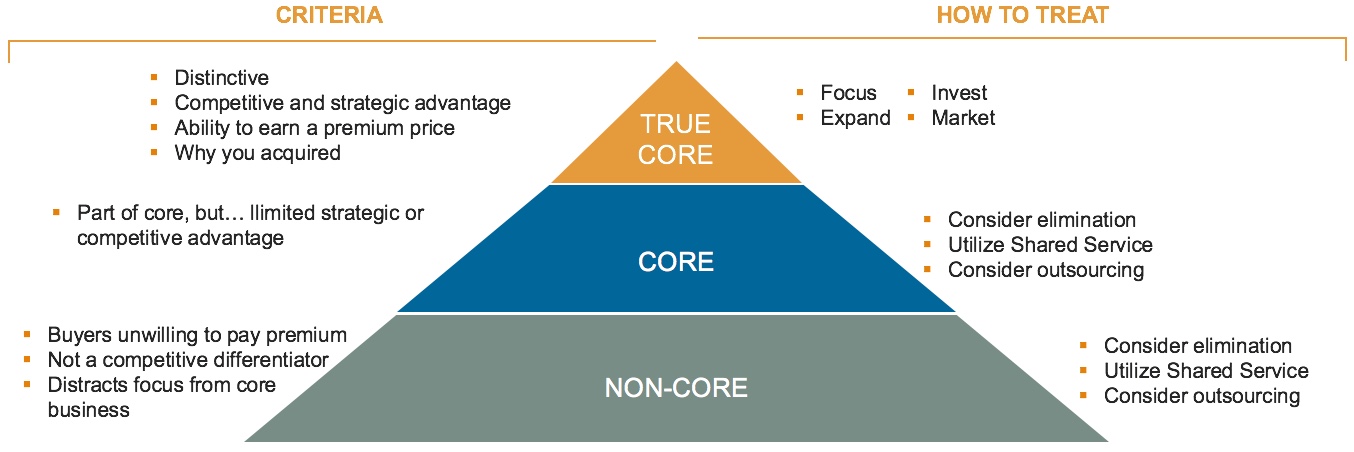SHARED SERVICES ALLOW LEADERS TO “FOCUS ON THE CORE”
Shared service arrangements consolidate administrative functions in areas such as finance, IT and Human Resources (HR) which allows organizations to focus their resources on core activities leading to increased value of the core business and administrative efficiency and reduced cost.
- Capabilities in HR, accounting, procurement, call center, and potentially other non-core functions are not why you bought the company
- Although the functions of these services are fundamental, duplicative cost centers across the portfolio weigh on EBIT during operations and at divestiture
- Buyers, on your divestiture, may value the option of buying only the true-core capability

SHARED SERVICE CRITICAL SUCCESS FACTORS
The implementation of shared service projects is not without risk but where they are successfully implemented they achieve increased efficiencies and effective service delivery. Critical lessons learned are applied to current Shared Services projects, plans, policies, and practices – in particular:
- Clear robust governance arrangements are in place
- Strong engagement by senior management at all stages of a project
- A thorough understanding of baseline performance and costs, as a prerequisite to developing strong business case options
- Monitoring of the benefits post-transition to shared services, and
Standardized processes, systems, and reporting

